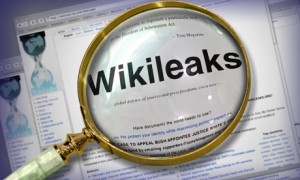Read: 10 Theses on WikiLeaks
WikiLeaks has struck our society with open eyes, as this international online organization continuously publishes secret information and classified media from anonymous sources. This website was launched in 2006 and claimed more than 1.2 million documents within a year of the website’s opening.
On the Tactical Media Files website, Geert Lovink & Patrice Riemens write about the ten theses on WikiLeaks.
Geert Lovink is a media theorist, net critic, and activist. He studied political science at the University of Amsterdam for her M.A. & received her Ph.D. at the University of Melbourne. In 2004, Lvoink was appointed as researc professor at the Hogeschool van Amsterdam & associate professor at University of Amsterdam. Patrice Riemens is a geographer. He is currently the Fellow of the Waag Society in Amsterdam. He is a member of the staff of Multitudes, a French philosophical, political & artistic monthly journal that focuses on the further elaboration of the philosophical & political thought of the Italian operaismo.
These 10 theses focus on WikiLeaks and revolution that it has brought to our Internet culture. The these that I thought was most important and relevant to how I view WikiLeaks.
These 10.
“We do not think that taking a stand in favor or against Wikileaks is what matters most. Wikileaks is there, and there to stay till it either scuttles itself or is destroyed by the forces opposing its operation. Our point is rather to (try to) pragmatically assess and ascertain what Wikileaks can, could – and maybe even, who knows, should – do, and help formulate how ‘we’ could relate to and interact with Wikileaks. Despite all its drawbacks, and against all odds, Wikileaks has rendered a sterling service to the cause of transparency, democracy and openness. We might wish it to be different, but, as the French would say, if something like it did not exist, it would have to be invented. The ‘quantitative turn’ of information overload is a fact of present life. One can only expect the glut of disclosable information to grow further – and exponentially so. To organize and interpret this Himalaya of data is a collective challenge that is out there, whether we give it the name ‘Wikileaks’ or not.”
WikiLeaks provides a safe space for whistleblowers to release secure information for the better of our society. The writers and publishers are not attempting to take any side on political issues. They simply want to inform the public so that they may create their own opinions on these issues.

